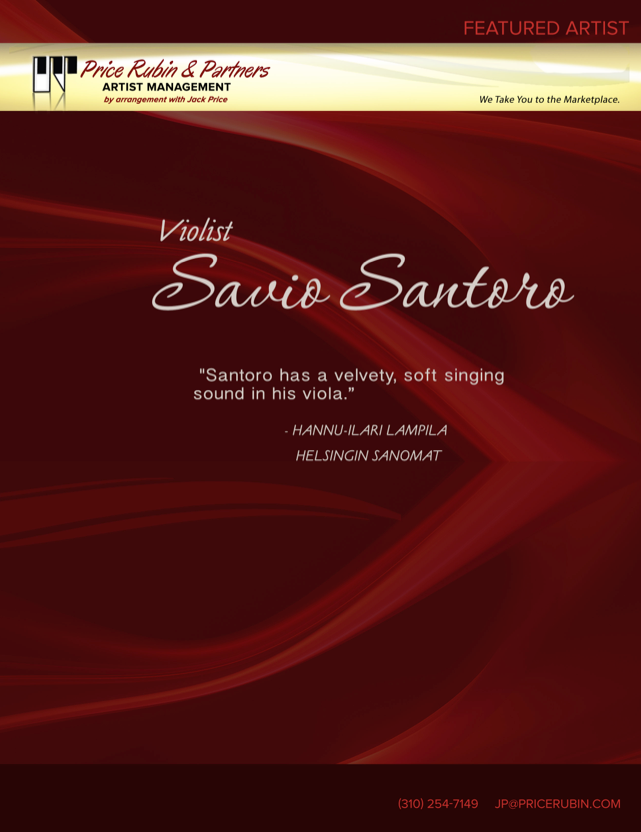A Brazilian born violist and also Italian citizen, Santoro holds a Doctor of Musical Arts degree from Boston University (USA) and a Master of Music degree from Yale University (USA), both in viola performance. Dr. Santoro was an associate professor of viola and a chamber music coach at the Federal University of Acre and currently holds the same position at the Federal University of Pernambuco since August 2009 (both positions as tenure).
Dr. Santoro is one of the most active violists in Brazil. In 1993, he joined the National Symphony Orchestra (position held until 2008). He has given viola recitals in the five continents, in the following countries: Benin, Brazil, China, Costa Rica, Dominican Republic, England, Finland, Guatemala, Italy, New Zealand, Peru, Paraguay, Romania, and Trinidad and Tobago. He has also given viola masterclasses at the Massey University (New Zealand), National Conservatory of Music (Paraguay), University of Costa Rica, among other institutions.
He also develops an intense activity as soloist, including orchestral solo performances with the National Symphony Orchestra (Brazil), Brazilian Chamber Orchestra, Recife Symphony Orchestra etc. Through competition held in over fifty countries, he joined the Jeunesses Musicales World Orchestra in 1997 and 1998, performing in Switzerland, Germany, Holland, and Israel. As a guest of the State Symphony Orchestra of São Paulo, Dr. Santoro participated as a co-principal viola in its tour of nine European countries in 2007.
Among the honors and awards received, these shall be included: 1st viola prize in the Showpiece String Competition sponsored by Boston University, 1st viola prize in the 5th National String Competition of the City of Juiz de Fora - Brazil, elected a member of the Pi Kappa Lambda (the honor society in music in the USA) for his “merit and outstanding achievement”, and Cultural Personality of the Year by the Brazilian Society of Writers.
"Santoro has a velvety, soft singing sound in his viola. If necessary, he also gets temperament. To the encore, Sibelius Valse Triste, he built a dramatic austere rise and then returned to the silent song of silence."
-Hannu-Ilari Lampila, Helsingin Sanomat September 7h, 2008.
0
